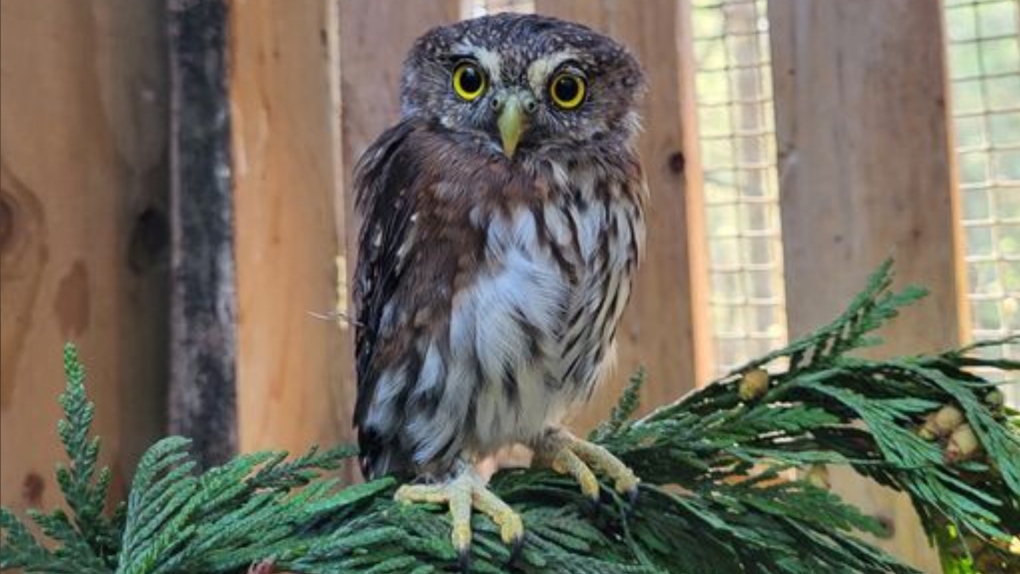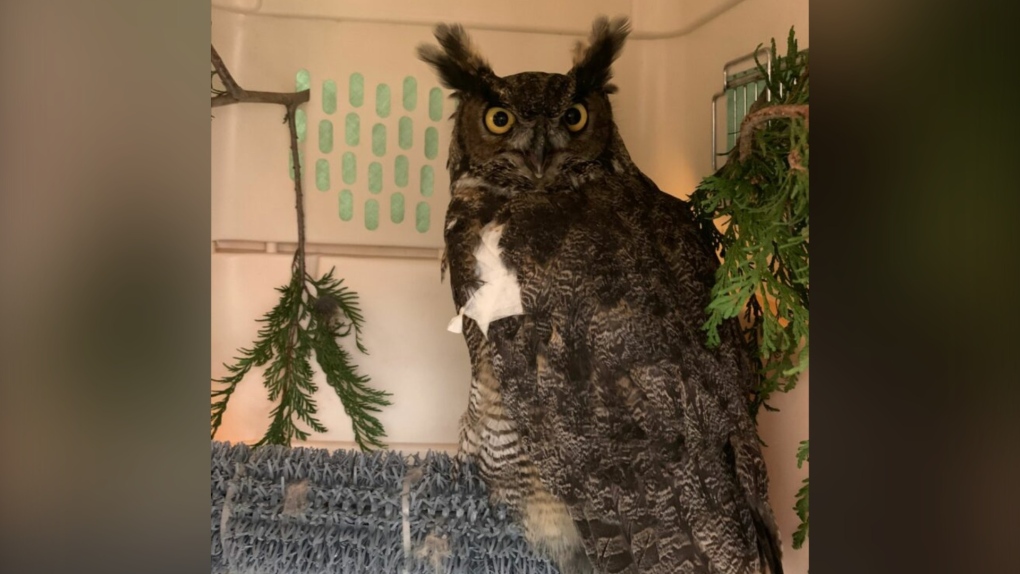B.C. drivers urged to be on the lookout for owls as seasons change
 This photo posted to Facebook by the BC SPCA's Wild Animal Rehabilitation Centre shows a pygmy owl that is in the organization's care.
This photo posted to Facebook by the BC SPCA's Wild Animal Rehabilitation Centre shows a pygmy owl that is in the organization's care.
As summer wanes and there are fewer daylight hours, the BC SPCA is warning drivers in the province to be on the lookout for owls on the roadside.
The birds hunt in low light or darkness and the animal welfare charity says it sees an increase in injuries each year when the season changes.
"As the days get shorter and people commute to and from work in the dark, nocturnal animals like owls are also active at these times, hunting near roadsides for small rodents like mice and shrews,” writes Dr. Andrea Wallace, manager of wild animal welfare in a media release this week.
“As a result, they are at higher risk from vehicle collisions during this time of year, and we encourage those on the road to exercise extra caution when driving.”
The organization's Wild Animal Rehabilitation Centre continues to see an uptick in the number of injured owls needing treatment at the facility.
In a recent incident, a great horned owl was found hurt on the side of the highway on Vancouver Island.
"It’s very likely the owl was struck by a car while foraging for food. This beautiful bird suffered a broken wing, and will take weeks to fully recover," the statement from the organization says.
 This photo posted online by the BC SPCA shows a great horned owl that was recently injured on Vancouver Island.
This photo posted online by the BC SPCA shows a great horned owl that was recently injured on Vancouver Island.
Tips for safely sharing the road with owls include paying attention to road signs warning of wildlife, keeping an eye out for shining eyes on the side of the road and following the speed limit.
Drivers who do see wildlife of any kind are being reminded not to honk or flash their lights at the creatures.
Food littered on the side of the highway is one of the things that draws owls and other birds of prey to the side of the road because it attracts rodents, the BC SPCA notes.
"Animals can easily become habituated to learn that roadways are food sources, further increasing the risk of collision," the charity's statement says, reminding drivers to properly dispose of all their waste and recyclables.
CTVNews.ca Top Stories

RCMP uncovers alleged plot by 2 Montreal men to illegally sell drones, equipment to Libya
The RCMP says it has uncovered a plot by two men in Montreal to sell Chinese drones and military equipment to Libya illegally.
Demonstrators kicked out of Ontario legislature for disruption after failed keffiyeh vote
A group of demonstrators were kicked out of the legislature after a second NDP motion calling for unanimous consent to reverse a ban on the keffiyeh failed to pass.
Tom Mulcair: Park littered with trash after 'pilot project' is perfect symbol of Trudeau governance
Former NDP leader Tom Mulcair says that what's happening now in a trash-littered federal park in Quebec is a perfect metaphor for how the Trudeau government runs things.
Government agrees to US$138.7M settlement over FBI's botching of Larry Nassar assault allegations
The U.S. Justice Department announced a US$138.7 million settlement Tuesday with more than 100 people who accused the FBI of grossly mishandling allegations of sexual assault against Larry Nassar in 2015 and 2016, a critical time gap that allowed the sports doctor to continue to prey on victims before his arrest.
Man wanted in connection with deadly shooting in Toronto tops list of most wanted fugitives in Canada
A 35-year-old man wanted in connection with the murder of Toronto resident 29-year-old Sharmar Powell-Flowers nine months ago has topped the list of the BOLO program’s 25 most wanted fugitives across Canada, police announced Tuesday.
Doctors ask Liberal government to reconsider capital gains tax change
The Canadian Medical Association is asking the federal government to reconsider its proposed changes to capital gains taxation, arguing it will affect doctors' retirement savings.
Keeping these exotic pets is 'cruel' and 'dangerous,' Canadian animal advocates say
Canadian pet owners are finding companionship beyond dogs and cats. Tigers, alligators, scorpions and tarantulas are among some of the exotic pets they are keeping in private homes, which pose risks to public safety and animal welfare, advocates say.
Thieves use stolen forklift to rip cash machine out of U.K. bank
Police in the U.K. are searching for a group of suspects seen on video using a forklift to steal a cash machine from a bank.
'There was a lot of black smoke': Crane operator sounds alarm while trapped during highrise fire in Halifax
A tower crane operator alerted emergency crews after noticing a fire on a construction site in Halifax Tuesday morning.






























